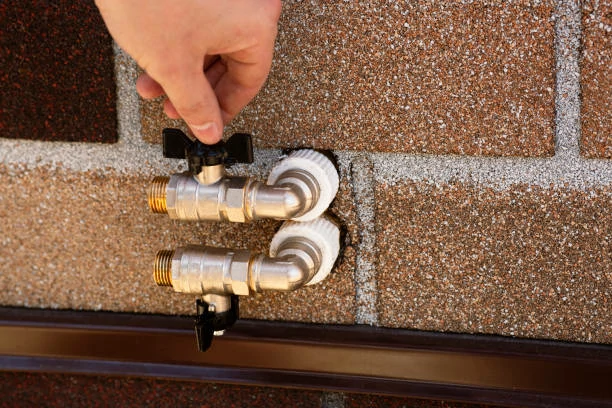Introduction:
Over the years, the world of piping systems has witnessed a transformative shift, with High-Density Polyethylene (HDPE) pipes emerging as a modern alternative to traditional materials. In this article, we delve into a comprehensive comparison, analyzing the performance and features that set HDPE pipe apart from conventional options.

1. Performance Metrics: Unveiling the Strengths
1.1 Corrosion Resistance: HDPE’s Armor Against Decay
Traditional pipes, often made of metals like steel or iron, are susceptible to corrosion over time, leading to degradation and potential leaks. HDPE pipe, on the other hand, boast remarkable corrosion resistance. This feature not only ensures a longer service life but also reduces the need for frequent maintenance and replacements.
1.2 Flexibility and Durability: The HDPE Advantage
One of the standout characteristics of HDPE pipe is their flexibility, contrasting with the rigidity of traditional materials. HDPE’s flexibility facilitates easier installation, especially in areas with challenging terrain. Additionally, this flexibility contributes to the pipes’ durability, making them less prone to cracks or fractures caused by ground movement.
1.3 Chemical Resistance: Safeguarding Against Harmful Agents
In applications involving the transportation of chemicals or wastewater, HDPE pipe demonstrate superior chemical resistance. Traditional pipes may succumb to the corrosive effects of certain substances, compromising the integrity of the system. HDPE’s resistance to a broad spectrum of chemicals ensures a reliable and robust piping solution across various industries.
2. Features Analysis: Contrasting Characteristics
2.1 Installation Efficiency: HDPE’s Flexible Maneuverability
HDPE pipe outshine traditional options in terms of installation efficiency. Their flexibility allows for bending and maneuvering around obstacles, reducing the need for additional fittings. Traditional pipes, characterized by rigidity, often necessitate intricate joint systems, adding complexity and time to the installation process.
2.2 Weight and Handling: HDPE’s Lightweight Advantage
When it comes to weight, HDPE pipe are significantly lighter than traditional materials like concrete or metal. This characteristic simplifies handling during transportation and installation, contributing to overall project efficiency. In contrast, traditional pipes, with their heavier composition, may require specialized equipment and entail higher logistics costs.
2.3 Longevity and Maintenance: HDPE’s Low-Cost Lifecycle
HDPE pipe offer a compelling advantage in terms of longevity and maintenance costs. Their resistance to corrosion and abrasion translates to a prolonged service life, minimizing the frequency of replacements. Traditional pipes, while robust, may incur higher maintenance expenses over time, especially in corrosive environments.
3. Environmental Considerations: A Sustainable Shift
3.1 Eco-Friendly Manufacturing: HDPE’s Green Credentials
Environmental sustainability has become a crucial consideration in modern construction practices. HDPE pipe score high on eco-friendliness, as their manufacturing process generates fewer greenhouse gas emissions compared to the production of traditional materials. This aligns with the global shift towards sustainable and responsible building practices.
3.2 Recyclability: HDPE’s Circular Economy Contribution
Unlike some traditional materials that end up as non-recyclable waste, HDPE pipe are fully recyclable. Choosing HDPE contributes to the principles of a circular economy by reducing plastic waste and promoting the reuse of materials. This aligns with the growing emphasis on responsible waste management and resource conservation.
Conclusion:
In conclusion, the comparison between HDPE pipe and traditional pipes underscores the transformative potential of modern materials in the realm of piping systems. HDPE’s exceptional performance metrics, contrasting features, and environmental considerations position it as a forward-looking choice for various applications. As industries and municipalities seek reliable, efficient, and sustainable piping solutions, HDPE emerges as a frontrunner, shaping the future of modern infrastructure.
Contact:
IFAN is a manufacturer with 30 years of experience, specializing in plastic pipes, fittings, and valves in China. If you are interested in IFAN’s copper valves, PPR valves, pipes, and fittings, feel free to contact us. IFAN provides various standard pipes to meet your specific needs. Click the link below to explore IFAN’s diverse, cost-effective valve products, as well as related pipeline system products.
We will reply your email or fax within 24 hours.
You can call us at any time if there is any question on our production.
For more information,pls visit our webside https://www.ifanplus.com/
Pls Mailto: [email protected]






